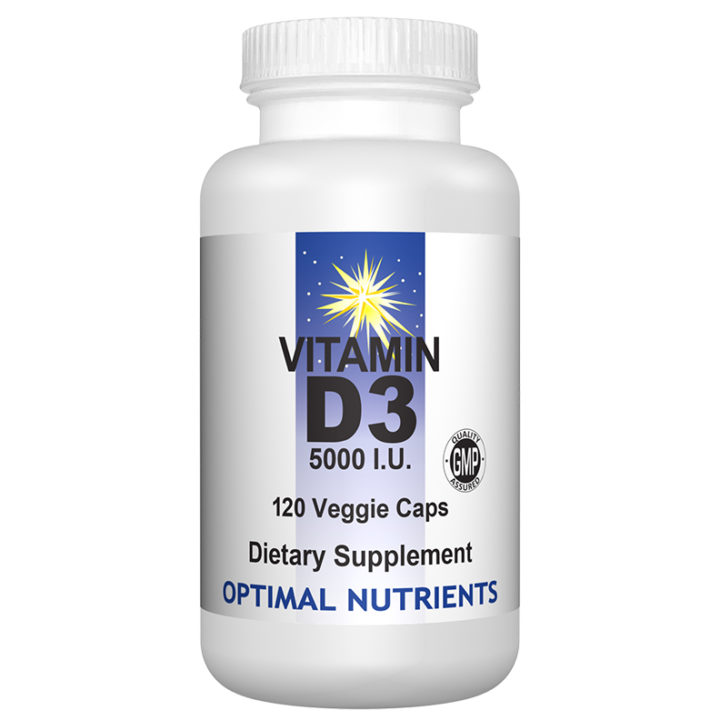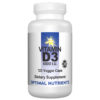Description
Vitamin D3 The Sunshine Vitamin 5,000 i.u.
Vitamin D3 is an important nutrient for bone health and healthy immune function support
Research Indicates that Vitamin D may:*
Be an important nutrient for bone health
Support healthy joint function
Be important for healthy immune function
Support overall skin health
What is Vitamin D3?
Vitamin D3 (as cholecalciferol) is a fat-soluble vitamin. It is known as the “sunshine” vitamin” because it is formed in the body by the action of the sun’s ultraviolet rays on the skin. Vitamin D is converted in the kidneys to the hormone calcitrol, which is actually the most active form of Vitamin D. The effects of this hormone are targeted at the intestines and bones. The major biologic function of Vitamin D is to maintain normal blood levels of calcium and phosphorus. Vitamin D aids in the absorption of calcium, thereby helping to form and maintain strong bones. It promotes bone mineralization in concert with a number of other vitamins, minerals, and hormones.
Sunshine vitamin
Vitamin D is sometimes called the “sunshine vitamin” because it’s produced in your skin in response to sunlight. It’s a fat-soluble vitamin in a family of compounds that includes vitamins D-1, D-2, and D-3.
Your body produces vitamin D naturally when it’s directly exposed to sunlight. You can also get it through certain foods and supplements to ensure adequate levels of the vitamin in your blood.
Vitamin D has several important functions. Perhaps the most vital are regulating the absorption of calcium and phosphorus, and facilitating normal immune system function. Getting a sufficient amount of vitamin D is important for normal growth and development of bones and teeth, as well as improved resistance against certain diseases.
If your body doesn’t get enough vitamin D, you’re at risk of developing bone abnormalities such as soft bones (osteomalacia) or fragile bones (osteoporosis).
Vitamin D3 reduces depression
Research has shown that vitamin D might play an important role in regulating mood and warding off depression. In one study, scientists found that people with depression who received vitamin D supplements noticed an improvement in their symptoms.
In another study of people with fibromyalgia, researchers found vitamin D deficiency was more common in those who were also experiencing anxiety and depression.







Reviews
There are no reviews yet.